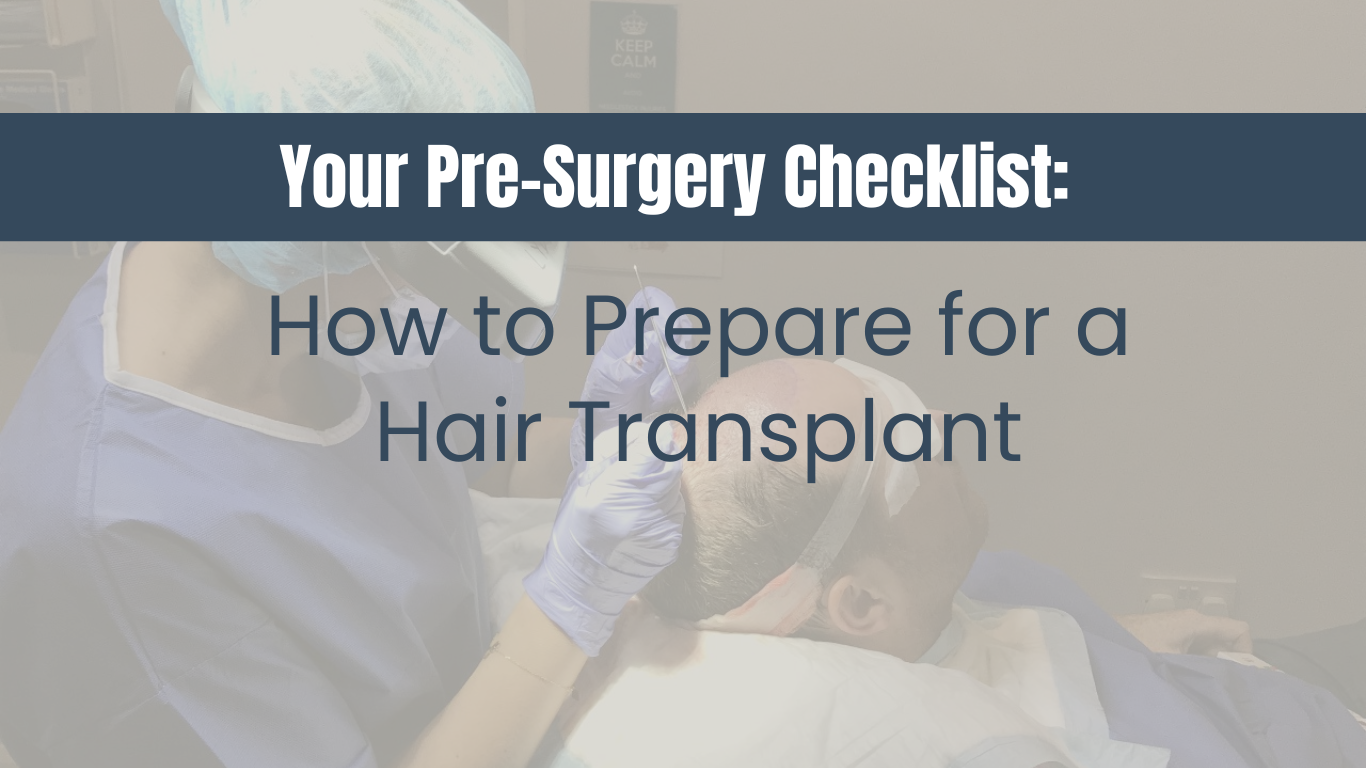
Every successful hair transplant begins long before the surgery itself. Proper preparation helps your body heal faster, reduces complications, and ensures the best possible results.
If you’re planning a hair transplant, knowing what to do and what not to do in the days leading up to the procedure is crucial. In this guide, we’ll explain how to prepare for a hair transplant, why pre-surgery care matters, and which habits to avoid for a smooth recovery and strong, natural regrowth.
Hair transplant preparation is the process of getting your scalp and body ready for surgery. It involves simple but important steps that improve healing and the survival of transplanted follicles.
A hair transplant whether FUE (Follicular Unit Extraction) or FUT (Follicular Unit Transplantation) involves moving healthy follicles from the donor area to thinning or bald zones. These grafts need the right environment to thrive. Your scalp’s blood flow, skin condition, and overall health directly influence how well the new hair takes root.
Preparing correctly helps your surgeon perform with precision and gives your hair the best chance to grow naturally and evenly.
Your surgeon’s recommendations are not just routine they’re essential for graft survival and long-term success. A few careful adjustments before your surgery can make a visible difference afterwards.
Alcohol and nicotine reduce blood flow and slow healing.
Stop drinking alcohol at least 3–5 days before surgery.
Quit smoking 1–2 weeks before the procedure.
Both substances thin the blood and interfere with oxygen delivery to the scalp, which affects graft attachment and recovery.
Avoid aspirin, ibuprofen, and other NSAIDs for at least seven days before surgery, as these medications increase bleeding risk.
If you take prescribed blood thinners, consult your doctor before making any changes.
Supplements such as ginseng, garlic, ginkgo, omega-3 oils, and vitamin E can thin the blood. Stop taking them at least a week before your transplant unless your surgeon advises otherwise.
Do not use gels, waxes, sprays, or undergo colouring or perming for a week before your procedure. These products can irritate the scalp and make the donor area harder to prepare.
Avoid cutting or shaving your hair before surgery. Your surgeon will trim it to the required length during preparation. Cutting it too short beforehand may make it harder to identify suitable grafts especially for FUE procedures.
On surgery day, wear a loose, front-opening shirt or zip-up hoodie. Avoid tight collars or clothing that must be pulled over your head, as they could disturb the grafts after surgery.
Sleep well the night before. Have a light, balanced meal a few hours before the procedure. Avoid caffeine on the morning of surgery, as it can raise blood pressure and cause bleeding.
Avoid high-intensity exercise, weightlifting, or running for 48 hours before surgery. Physical strain raises blood pressure, increasing the risk of bleeding during the procedure.
Arrange transport home, as you’ll feel drowsy after anaesthesia. Keep your schedule clear for a few days post-operation to rest and recover comfortably.
Even small oversights can affect your outcome. Avoid these common errors:
Taking your pre-surgery checklist seriously helps your surgeon work efficiently and gives your grafts the healthiest start possible.
A: Yes. Wash your hair with a mild shampoo the day before your transplant, and avoid conditioners or styling products afterwards.
A: It’s best to avoid caffeine that day, as it can increase your heart rate and blood pressure.
A: Always tell your surgeon about any medication or supplements you use. They’ll guide you on which to continue or stop temporarily.
A: Ignoring preparation steps can result in complications, slower recovery, and reduced graft survival. Preparation directly impacts the final outcome.
A: Ideally two weeks. Even stopping one week prior can improve circulation and healing but the longer, the better.
Preparation is a vital part of a successful hair transplant. Every step you take before surgery from quitting smoking to wearing the right clothes helps your body heal efficiently and ensures strong, lasting results.
At Haris Hair Transplant, patients receive a detailed pre-surgery plan tailored to their needs. With careful preparation and expert surgical care, you can look forward to natural growth, minimal discomfort, and lasting confidence in your new hair.
For personalised consultation or questions, contact us here.